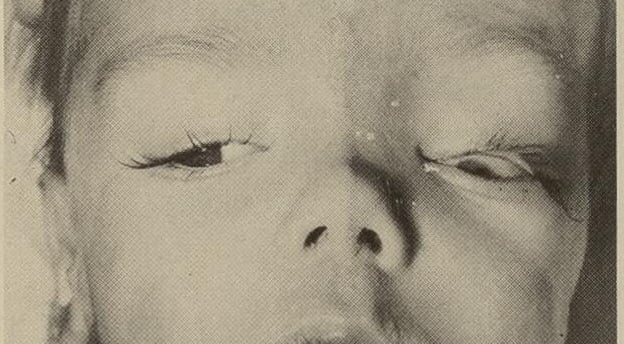Sebaceous Nevus Syndrome: A Comprehensive Guide
Sebaceous Nevus Syndrome (SNS) is characterized by the presence of sebaceous nevi—skin lesions rich in oil glands—this syndrome is more than just a dermatological anomaly. It encompasses a spectrum of neurological, ocular, and skeletal abnormalities.
DERMATOLOGYNEUROLOGY
Rishwin A R
1/27/20252 min read


What is Sebaceous Nevus Syndrome?
Sebaceous Nevus Syndrome is a congenital disorder primarily marked by the presence of sebaceous nevi, which are yellowish, slightly raised patches on the skin. These lesions often appear on the scalp, face, or neck but can be found elsewhere on the body.
This syndrome goes beyond the skin, with possible systemic involvement in:
Neurological abnormalities, such as seizures or developmental delays.
Ophthalmic issues, including vision impairment.
Skeletal defects, like spinal abnormalities.
Causes
The exact cause of SNS is not fully understood, but it is often linked to genetic mutations. These mutations occur during embryonic development and affect specific cells, leading to the characteristic features of the syndrome.
Key Points on Causes:
SNS is believed to result from postzygotic mutations in the HRAS or KRAS genes.
These mutations are somatic, meaning they are not inherited but arise spontaneously.
The condition is part of a broader group of disorders called mosaic RASopathies.
Symptoms
The symptoms of SNS can vary widely between individuals. While some may only exhibit skin lesions, others may have multisystem involvement.
Dermatological Features:
Sebaceous Nevi: Yellowish plaques typically present at birth or appearing in early childhood.
Skin Growths: Nevi can occasionally develop into tumors, such as basal cell carcinoma, later in life.
Neurological Symptoms:
Seizures
Cognitive Delays
Hydrocephalus: Accumulation of cerebrospinal fluid in the brain.
Ocular Issues:
Vision problems due to eye malformations.
Risk of optic nerve damage.
Skeletal Abnormalities:
Curvature of the spine (scoliosis).
Limb deformities.
Diagnosis
Diagnosing SNS involves a multidisciplinary approach, as the condition affects multiple systems.
Steps in Diagnosis:
Physical Examination:
Dermatologists assess the appearance of sebaceous nevi.
Imaging Tests:
MRI or CT scans to evaluate neurological and skeletal anomalies.
Biopsy:
Skin lesions may be biopsied to rule out malignancy.
Genetic Testing:
Identifying mutations in the HRAS or KRAS genes can confirm the diagnosis.
Treatment
Management of Sebaceous Nevus Syndrome depends on the severity and type of symptoms.
Dermatological Management:
Regular Monitoring: Keeping an eye on nevi for signs of malignant transformation.
Surgical Removal: Lesions with a high risk of malignancy are often excised.
Neurological Treatment:
Anti-Seizure Medications: To control epilepsy.
Surgical Interventions: For hydrocephalus or severe neurological defects.
Ocular and Skeletal Care:
Vision Therapy: Glasses, surgery, or other corrective measures.
Orthopedic Treatments: Correcting limb or spinal deformities.
Prognosis
The outlook for individuals with SNS varies based on the extent of systemic involvement. Early diagnosis and a tailored, multidisciplinary approach significantly improve quality of life.
Frequently Asked Questions (FAQs)
1. Can Sebaceous Nevus Syndrome be inherited?
No, SNS is caused by somatic mutations that occur spontaneously and are not passed down from parents.
2. Are sebaceous nevi always cancerous?
No, but they do carry a higher risk of developing into skin cancers like basal cell carcinoma, especially in adulthood.
3. Is surgery necessary for all sebaceous nevi?
Not always. Surgery is typically recommended if there is a suspicion of malignancy or if the lesions cause cosmetic or functional issues.
4. Can SNS affect life expectancy?
Life expectancy depends on the severity of associated complications. With proper management, many individuals live normal lifespans.
5. Are there support groups for SNS?
Yes, several organizations and online communities offer support for individuals and families dealing with rare syndromes like SNS.
From Wikipedia
Syndromes.xyz
Explore medical syndromes and their details here.
For Educational purposes only
The information on this site is not in any way, replacement for professional advice. Always consult your physician regarding personal queries
Connect
Support
syndromesxyz@gmail.com
© 2024. All rights reserved.
